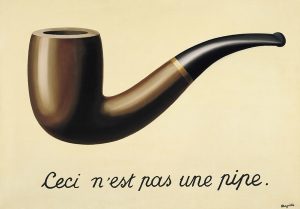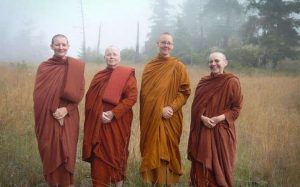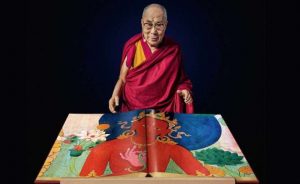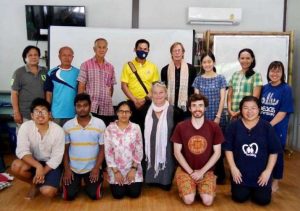
It is said that your conditions determine your vocation in life. Sometimes, such a proverb overlooks the role that human hands play in dealing a reshuffle to the deck of fate. We forget how human action can be just as decisive as the force of karma. I’ve always thought individual agency was especially prominent in the Western women and men who took up the robes of Pure Land Buddhism. Because here is an unfamiliar school of Buddhism rooted in Chinese culture and civilization, with far less exposure in North America and Europe than Tibetan, Zen, and Therav?da Buddhism – yet because of the conscious decisions taken by nuns like Venerable Wuling, the light of the Pure Land is lilting past the curtains of cultural unfamiliarity and warming the window between Buddhism and the English-speaking world.
“Both my parents are now deceased, but my mother was alive when I became a nun,” she tells me. “Both she and my sister attended my tonsure ceremony and fully supported my decision to become a nun. And my mother went even further. When we were out in public, she would often watch people’s reactions upon seeing me and tell them with a smile after I had passed, ‘Buddhist nun.’ We had it down beautifully. I was able to just walk and smile, and she got to talk. A perfect arrangement based on our personal skill sets.”
It was in Dallas, Texas, where she took courses in Buddhism and a six-month lecture series. She was helping edit translations of Venerable Master Chin Kung’s talks and wished to spend more time in bringing the Chinese Pure Land teachings to those who spoke English. But how did that lead to such a life-changing decision? “People write to me asking how to become a monastic. I think the process I went through is an excellent way. I first found a home in the Pure Land method, a method that ideally suited my limited ability and manner of living. Six months later, I encountered Venerable Master Chin Kung, the ideal master for me to study under. Listening to translations of his talks was wonderful. But I was also happy just listening to him lecture when I had no translator!” she smilingly remembers.
Everyday life – the grind of living to work and working to live – became less important before Buddhist priorities. “Initially, I had no idea of becoming a nun. It wasn’t until I was in the practice and had found my teacher that the idea gradually arose. I think this was so important because first I had the wish to help others in a method of practice and learning that I had personally benefitted from. Second, I had found the master I wished to continue my studies and practice with. Third, I had the good fortune to be in Dallas where there were monastics in residence so I could see what monastics’ lives were really like. Everything fell into place. There was no seeking or trying to make the process happen. Frankly, I was extremely fortunate.”
Not surprisingly, Ven. Wuling speaks most tenderly of her supportive mother and her memory. “The practitioners at the Dallas Buddhist Association were very welcoming back then. They were living embodiments of compassion, not just to me but also to my mother. She loved to go with me and hear everyone call her ‘Mom.’ The first thing she would tell people about Buddhism was, ‘It’s not a religion. It’s an education!’
“I was drawn by the simplicity and clarity of chanting the Buddha-name of ‘Amituofo.’ I loved the idea that Sakyamuni Buddha advised that people in the future, what is now our time, should seek rebirth in another Buddha’s Pure Land. Also, there is a wonderful emphasis on moral conduct in Chinese Pure Land. Amitabha Buddha had made forty-eight vows but they alone wouldn’t ensure my rebirth. Yes, he had the great compassion in waiting for me lifetime after lifetime, waiting for me to reach out to him with my chanting, never giving up on me. But I had to make the vow to be reborn there, have unwavering belief, and practice. For practice, I needed to chant his name with a focused mind. Additionally, I had to live a moral life, not just chant ‘Amituofo.’ I had to take responsibility for my own causes and consequences. There was no magic. I had to do the work. That made eminent sense to me.”
These days, she lives in close proximity with her friends and disciples. Having been a nun for more than fifteen years, the people she knows are either Buddhists or have only ever known her as a Buddhist nun. She has taught a diverse and dedicated group of students in Indiana since 2005. “Living in close proximity is very beneficial, because it is important to teach through example. It is an arrangement that benefits both a teacher and a student.”
Most of her time is now spent in the United States, where she has a small center in her apartment. Simple is best: the living room is the cultivation room, the dining room her office, and there is a small sitting room where she meets with people. Her private quarters contain a bed, desk, and bookcases, as well as an exercise bike. She wanted to stow it in the garage, but a practitioner gave her a pointed look and told her she needed to have it in a place where she would use it daily. Living a simple life, she does not have a car but relies on students to take her on grocery rounds. “Luckily, there’s several who help with this, so it’s not a burden on any one person. Going out with students increases our joint sense of community,” she reminds me. “And fortunately, I only need to go out a few times a month. It’s also a good practice because every time I do need to go out, I again renounce the personal comfort and convenience of being able to pop out to the store in a car whenever the mood strikes.”
Like all monastics, the major source of her income is through donations. With bank accounts now a necessary evil in today’s globalized society, Ven. Wuling insists that any money in her accounts needs to be for the use of the sa?gha – just as it has always been since the days of ??kyamuni.
She is a prolific writer and is passionate about technologically savvy education for children. “I feel it vitally important to introduce teachings of morality, respect, and compassion to children. These teachings are found in the various religions, faith traditions, and ethical teachings of many cultures. Presenting these teachings in ways that are sometimes humorous, sometimes touching, will hopefully enable them to be more widely accepted and put into practice. Also, we need to get the teachings into forms that people are using, like eBooks or interactive books for tablets like the iPad. How Will I Behave Today and the Rest of My Life? can be read online with the look and sounds of pages turning.”
I ask her which of her publications she is most proud of. Amused, she makes a note of avoiding the quagmire of pride and focuses on the ones she enjoyed writing most. “I enjoyed working on Heart of a Buddha and Path to Peace because they also entailed the visual aspects of the words. How Will I Behave Today and the Rest of My Life? was fun to write once I got over the shock and panic that I had committed myself to writing a children’s book. Technically, that was my most challenging offering. All those illustrations to find and colors to choose and coordinate! And I enjoyed Lundeeria: The Tale of a Journey to Another Land, Courage, and Compassion as it quickly seemed to write itself.”I ask her if she’ll come to Hong Kong. Currently this busy nun has no plans to leave America, but if she could pull back those curtains of cultural unfamiliarity and let the light shine through the American window, I can’t help having faith that she can do the same in our ruthlessly capitalist, money-obsessed port city. I’m hopeful she thinks the same: “I believe Buddhism, and especially Pure Land Buddhism, will continue to grow both in the West and the East. People are drawn to a practice in which the individual seeks to conquer not others, but, rather, their own selfish, negative thoughts; drawn to a practice where the ultimate goal is to help all beings end suffering and find lasting peace and happiness.”












